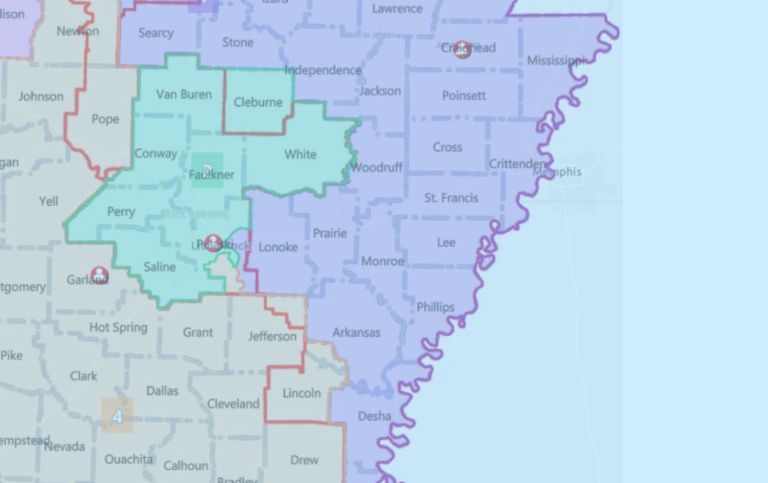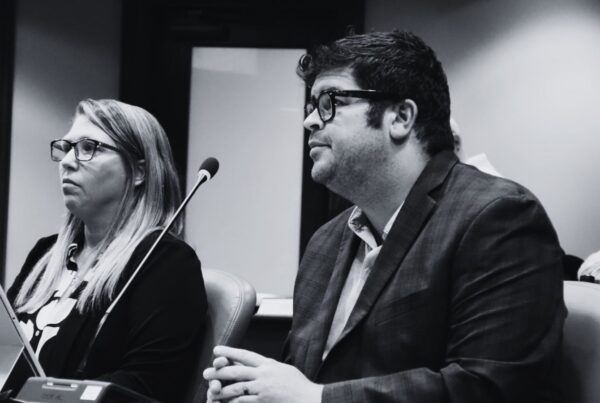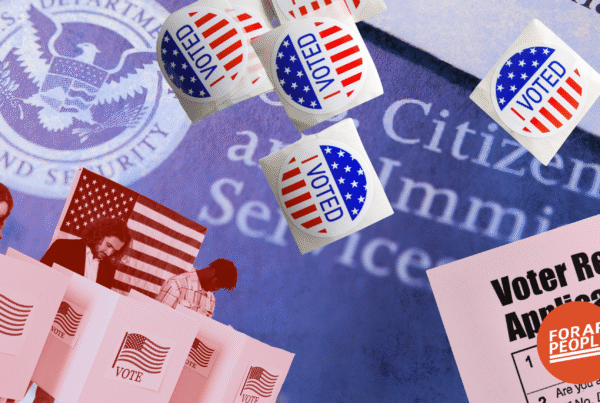The YOLO Court
The Supreme Court of the United States issued a few opinions this week. We’ve got SCOTUS whiplash! One ended affirmative action in higher education, while another ruled against election maps gerrymandered by the GOP. Here’s a rundown of what we’ve come to expect from the highest court in the land, and how the maps opinion matters to Arkansas.
For the past two terms, SCOTUS has been speedrunning down the list of far-right wishes. In the 2021-2022 term, the Court overruled Roe, hamstrung the EPA’s ability to regulate pollution, and decided that criminal defendants must remain on death row even if their state-appointed lawyer was demonstrably ineffective.
In the 2022-2023 term, the Court has again busily proceeded with rolling back the rights of defendants who didn’t actually commit a crime, the power of the EPA to protect clean water, and the rights of the Navajo Nation to clean and accessible water. Michigan Law professor Leah Litman has named this the YOLO Court: they have a far-right extremist supermajority, so they might as well do what they want. Basically, things are going about as well at the Supreme Court as they are here in Arkansas.
But despite all that, voting rights have fared surprisingly well this term. Two cases this term have protected the right to vote: Moore v. Harper and Allen v. Milligan. Both of them may have a huge impact on the voting rights of Arkansans.
With all that’s going on with LEARNS and Medicaid right now, it’s hard to focus on much else. But we wanted to dive into these two cases, discuss how they protect Arkansas voters, and how they’ll influence voting rights activism and lawsuits moving forward.
2021 Redistricting: Gerrymandering Black Arkansans Out of Power
Arkansas completed its decennial redistricting two years ago in the fall of 2021. The final district map notably split Pulaski County not two but three ways, racially gerrymandering Black voters out of holding any real voting power. The new maps seemed designed to protect Rep. French Hill’s seat, as his last few elections have been just a little too close for comfort.
A bipartisan group of legislators, from Clarke Tucker and Monte Hodges to Mathew Pitsch and John Payton, expressed grave concerns about the bill and how it was developed. Gov. Hutchinson allowed the bill to become law, but notably didn’t sign it, citing similar concerns.
It was immediately challenged in federal court, but the US Court of Appeals for the Eighth Circuit stated there was not enough evidence to confirm that the gerrymandering was racially motivated. Rest assured, there was ample evidence to prove racial bias, but until or if the Supreme Court rules on the issue, the Eighth Circuit’s order will stand.
Or at least, it would have. Now, we’re not so sure.
John Roberts, Protector of… Voting Rights? 🤔
Allen v. Milligan was a challenge to Alabama’s redistricting maps. Functionally, Alabama did exactly what the Arkansas Legislature did: stripped Black citizens of any real voting power. While Arkansas “cracked” apart Black voters by splitting them into three districts to ensure they’d never have a majority in any one district, Alabama “packed” Black voters by shoving them all into one district instead of the two they deserved. The end result for both states was the same: Black voters had limited ability to send their preferred representatives to Congress.
In a 5-4 decision, the Court found that the Alabama map did, in fact, violate the Voting Rights Act. Chief Justice Roberts, despite having stripped the Voting Rights Act of enforcement power in Shelby County v. Holder, Rucho v. Common Cause, and Brnovich v. DNC, stated that the Alabama map unconstitutionally diluted the voting power of the majority-minority voting districts.
This week in Moore v. Harper, the Court ruled 6-3 against a new legal theory known as the “Independent State Legislature” (ISL). Briefly, the theory states that state supreme courts have no authority to rule against election laws made by state legislatures; the legislatures are “independent” of any real oversight.
If that sounds like a massive overreach of legislative power, it’s because it is.
This idea was a key part of Donald Trump’s legal strategy to steal the 2020 election. If the Supreme Court had ruled in favor of ISL, it would have meant GOP-controlled legislatures could gerrymander to their hearts’ content without any oversight from either state or federal courts because the Supreme Court already ruled that federal courts have no ability to prevent political gerrymandering in Rucho.
Most significantly for presidential elections, it would have made it much easier for state legislatures to ignore the will of their voters and appoint “alternate slates” of electors to the electoral college. The country saw what that would mean on January 6th, 2021. That’s the kind of crazy we’re talking about.
Remember that rights, no matter how enshrined in state and federal constitutions, have no power if those whose rights have been violated have no ability to prove that violation in a court of law. ISL prevents voters from exercising their ability to prove their voting rights were being violated by state legislatures.
But the Supreme Court said no to ISL, for once following the black letter text of the law. Our voting rights remain, for now, relatively intact.
But What Does This Have To Do With Arkansas?
Let’s start with Allen v. Milligan. Because the Supreme Court struck down the Alabama map, it’s highly likely that Arkansas’ map is also unconstitutional. One lawsuit has already been appealed directly to the Supreme Court, which the high court must rule on because it’s a federal voting rights case. Whether or not the Supreme Court will hear the case in full or issue a perfunctory ruling remains to be seen. We won’t know anything until the fall, when the Court starts its 2023-2024 term, at the earliest.
Another lawsuit, begun this year and supported by the NAACP’s Legal Defense Fund, focuses on the potential violations of the 14th and 15th Amendments. This focus is important because if a federal judge finds in Pulaski County voters were stripped of their 14th and 15th Amendment rights, the judge can subject Arkansas to what’s called a pre-clearance regime, which means any change in voting laws must be signed off by a judge.
Both these lawsuits will likely rely on the Supreme Court’s decision in Allen because that decision makes it clear that “packing and cracking” violates a number of rights because of discriminatory effect, regardless of whether or not redistricting committees had obvious racial biases (again, we think it’s clear racial bias was a factor here in Arkansas, but unfortunately, we’re not a federal court). The plaintiffs therefore have the right to challenge these obviously discriminatory maps.
The National GOP is furious at this decision; it’ll make it harder for them to retain control of the House, and it’s entirely likely Rep. Hill will have to fight hard for his seat in 2024 if either of these lawsuits succeeds.
We’re sure Attorney General Griffin will fight these lawsuits every step of the way.
Moore v. Harper may have less of a direct impact, given the decision prevents ISL from being used to strip Arkansans of their rights. But it’s worth noting that our former Attorney General-turned-Lieutenant Governor, Leslie Rutledge, signed on to this crazy idea in a brief submitted to the Supreme Court. It’s frankly terrifying that such a powerful Arkansan expressed support for ISL. We don’t know if AG Griffin supports it or not, but we’ll be keeping a close eye on any statements he makes.
We want to close by pointing out that these two decisions are great news overall, but neither of them expand voting rights in Arkansas. They merely maintain the status quo. Black voters and voters in the Delta still struggle to access polling places or find themselves purged from voting rolls. The status quo in Arkansas, while preferable to what would have happened without the decisions in Allen and Moore, is still unacceptable. The work for equal access to voting for all Arkansans continues.





